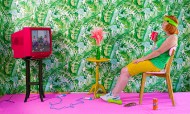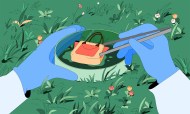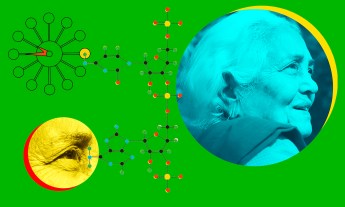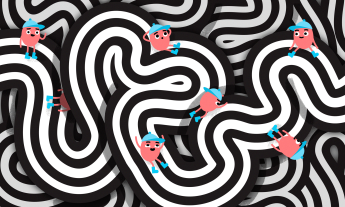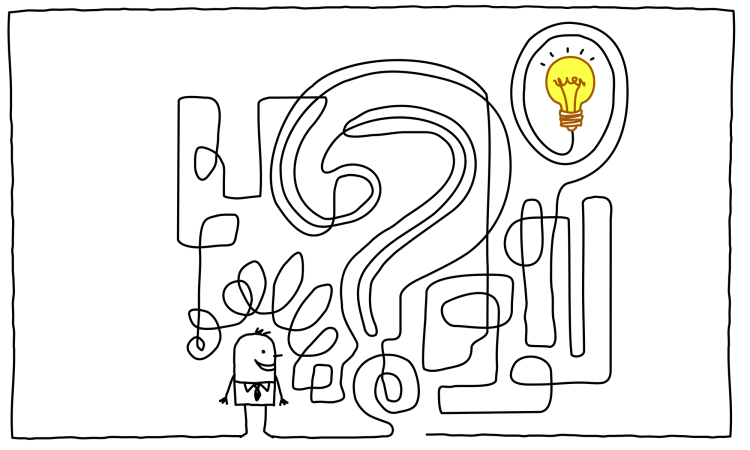
Uri Alon, a physicist turned systems biologist, admits that while studying for his Ph.D., he had a bit of a meltdown. His research was going in loops, all paths leading to dead ends. Because he’d always assumed that his work in science would be a straight line from question to answer, and because scientists don’t talk about the strong emotions that are part of the research experience, he was miserable, alone and lost. And he just didn’t think that scientists were supposed to get lost.
For Alon, a breakthrough came from an unusual source — improvisational theater. No, he didn’t magically find the answer to his research question while in an improv class. But he did find a new way to think about the scientific process. He realized that getting lost is actually a good thing, because only by winding through the murk can you find a truly original answer.
I took improv classes for about two years. And while it didn’t lead me to any scientific discoveries, it did help me tremendously in that crazy thing called navigating life. It helped me to give the proverbial “yes and…” answer instead of offering up instant “no”s; it taught me to pivot quickly in moments of change; and it gave me permission to switch off the part of my brain that is always thinking about self-presentation.
It doesn’t surprise me in the slightest that Alon found such inspiration in improv, giving both himself and his students a way to make scientific research less terrifying and more fun. Because, honestly, I think improv can offer that to pretty much anyone. Others seem to be stumbling across this idea, too. At Stony Brook University, a workshop called Improvisation for Scientists helps academics “talk about their work more spontaneously … and connect personally with their audience.” At Northwestern University, medical students can take a four-week improv course called “Playing Doctor.” There is even an improv class at the law firm DeBlis & DeBlis that offers improv for lawyers and accountants. And perhaps most telling about the therapeutic effects: Chicago’s iconic improv house The Second City offers Improv for Anxiety, a course created in partnership with a licensed psychotherapist.
Yes and … indeed.
[ted id=2020]
Photo: iStock.




